Table of Contents
Introduction
Integrating Artificial Intelligence (AI) and Machine Learning (ML) into enterprise solutions represents a paradigm shift in how businesses operate, make decisions, and interact with customers.
As a leading cloud-based Enterprise Resource Planning (ERP) suite, NetSuite stands at the forefront of this transformation, embracing the power of AI and ML to revolutionize the landscape of business management software.
NetSuite’s integration of ML technologies automates tasks, transforms data into insights, predicts trends, and improves customer service, giving businesses a competitive edge in the digital world. It sets a new standard for efficiency, agility, and growth, driving innovation across industries.
Current State of AI and Machine Learning in NetSuite
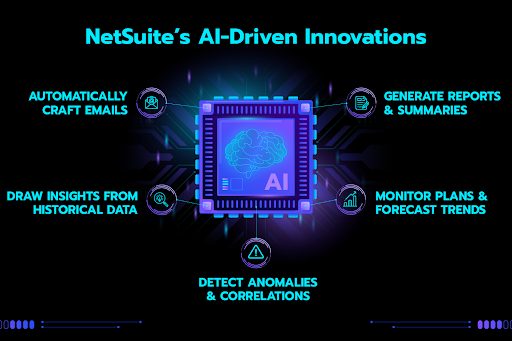
NetSuite has recently announced significant improvements to its platform by adding Artificial Intelligence (AI) and Machine Learning (ML) capabilities. The goal is to boost productivity, streamline business operations, and improve decision-making for its users.
- NetSuite has integrated generative AI capabilities throughout its suite, supported by Oracle Cloud Infrastructure’s generative AI service.
- The concept of “Suiteness” emphasizes the integration and synergy across NetSuite’s offerings. AI innovations play a central role in applying AI to data across a company’s operations to offer comprehensive and insightful analyses.
- NetSuite offers 80 AI-supported features designed to simplify access to actionable insights, helping businesses address current challenges and identify future opportunities.
- Specific AI tools and features include the NetSuite Upsell Engine, NetSuite AP Scan, and NetSuite Fulfillment Automation to improve sales, streamline data processing, and optimize fulfillment operations, respectively.
- By incorporating AI and ML, NetSuite is streamlining repetitive tasks while offering businesses a competitive edge through optimization, improved decision-making, and enhanced customer service.
These developments reflect NetSuite’s commitment to leveraging the latest technologies to provide comprehensive, AI-driven solutions that cater to the diverse needs of businesses across various sectors, enhancing their overall performance and efficiency.
Future Directions of AI and Machine Learning Integration in NetSuite

The integration of Artificial Intelligence (AI) and Machine Learning (ML) in NetSuite is expected to expand significantly in terms of scope and sophistication. This expansion would mainly focus on predictive analytics, automation, and personalized customer service.
These developments aim to improve decision-making, operational efficiency, and customer engagement. Let’s take a closer look at the potential future directions in these areas:
Advanced Predictive Analytics

Enhanced Forecasting Models
- By utilizing AI and ML, NetSuite can refine its forecasting models to predict future business outcomes more accurately.
- This includes sales forecasting, financial performance, inventory needs, and more. These models can analyze vast amounts of historical data and identify patterns, helping businesses anticipate market changes, and make informed strategic decisions.
Real-time Decision Making
- Integrating AI into NetSuite will enable real-time data analysis, allowing businesses to make immediate decisions based on the latest information.
- This agility is crucial in fast-moving markets, where opportunities and challenges arise swiftly.
- Real-time analytics can support dynamic pricing models, instant customer feedback analysis, and on-the-fly supply chain adjustments.
AI-driven Automation
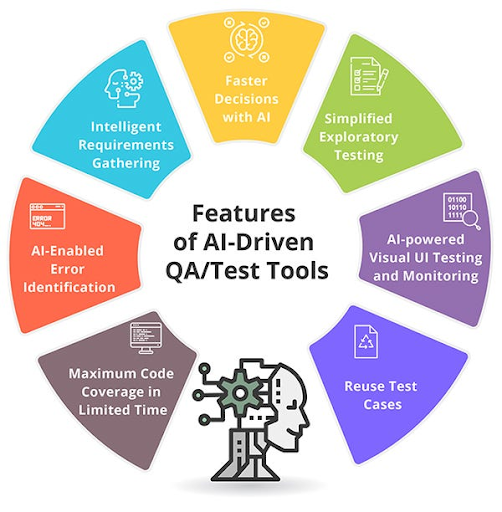
Streamlining Operations Across Departments
- AI and ML can automate routine tasks across all departments, from accounting and HR to sales and customer support.
- This can reduce the time and resources spent on these tasks.
- By automating processes such as data entry, invoice processing, and HR onboarding, companies can focus more on strategic activities.
Reducing Manual Data Entry and Errors
- Automating data entry speeds up the process and significantly reduces the risk of human error.
- This can lead to more accurate financial reports, better inventory management, and improved customer data analysis.
- AI-driven systems can learn from corrections over time, further increasing their accuracy.
Personalization and Customer Service
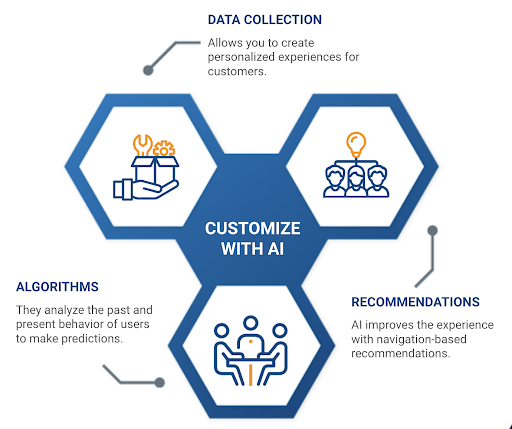
Customized User Experiences
- NetSuite can use AI to analyze customer data and behavior and offer personalized product recommendations, customized marketing messages, and tailored shopping experiences.
- This level of personalization can improve customer satisfaction and loyalty, driving higher sales and engagement.
Intelligent Customer Support Bots
- AI-powered customer support bots can provide instant assistance to customers, answering questions, resolving issues, and offering advice 24/7.
- These bots can access the entire history of customer interactions, making them highly effective at personalized service.
- Over time, they can learn from interactions to improve their responses and support capabilities.
These future directions for AI and ML integration in NetSuite point to a more efficient, insightful, and customer-centric approach to business management.
By leveraging the power of AI and ML, NetSuite aims to provide businesses with the tools they need to navigate the complexities of modern markets, improve operational efficiencies, and deliver exceptional customer experiences.
As these technologies continue to evolve, the scope of their application within NetSuite is likely to expand, offering even more innovative solutions to meet the challenges of tomorrow’s business environment.
Potential Benefits for Businesses
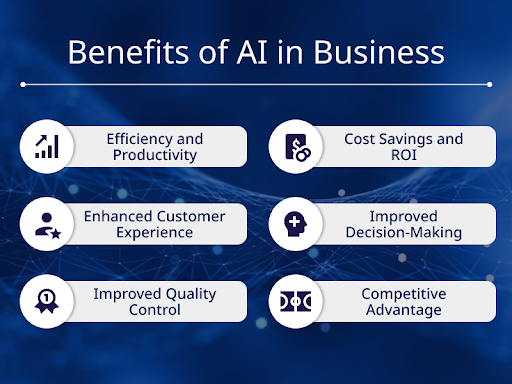
The integration of Artificial Intelligence (AI) and Machine Learning (ML) in NetSuite offers a range of potential benefits for businesses, driving improvements in efficiency, decision-making, customer experience, scalability, and innovation.
Here’s how these advancements can impact various aspects of business operations:
Increased Efficiency and Productivity
- Automation of Repetitive Tasks: By automating routine tasks, businesses can free up employee time, allowing staff to focus on more complex, value-added activities. This not only boosts productivity but also employee satisfaction, as workers can engage in more meaningful work.
- Faster Processing of Data and Transactions: AI and ML can process data at speeds unattainable by humans, leading to faster transaction processing, quicker data analysis, and more timely insights. This speed in processing can significantly improve business operations and customer response times.
Improved Decision Making
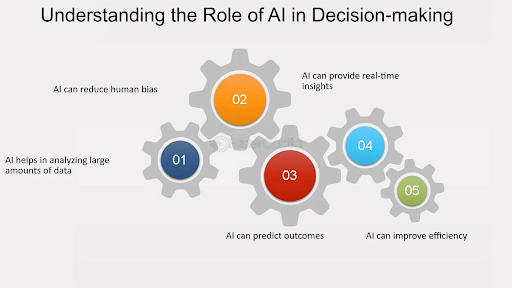
- Data-driven Insights: With AI, businesses can sift through vast amounts of data to identify trends, predict outcomes, and uncover insights that were previously inaccessible. These data-driven insights can inform strategic decisions, from market positioning to product development.
- Real-time Reporting and Analytics: AI-powered analytics allows businesses to monitor their operations continuously and make decisions based on the latest data. This capability is particularly valuable in dynamic industries where conditions change rapidly.
Enhanced Customer Experience
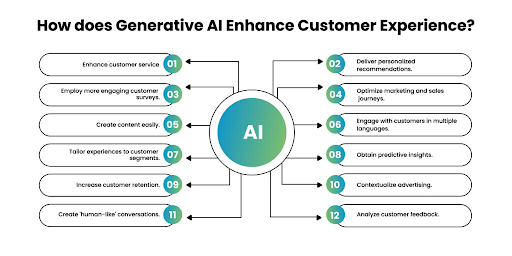
- Personalized Customer Interactions: AI offers highly personalized experiences by analyzing customer behavior and preferences. This can improve customer engagement and loyalty.
- Improved Customer Service and Support: AI-powered customer services, such as chatbots and automated support, can promptly and efficiently assist customers 24/7, improving customer satisfaction.
Scalability and Innovation
- Easy Adaptation to Business Growth: AI and ML systems can scale with a business, accommodating increased data volumes and transaction counts without a proportional increase in cost or complexity. This scalability supports business growth and expansion into new markets.
- Encouragement of Innovative Business Models: By leveraging AI and ML, businesses can explore new models and strategies that were previously impractical or impossible. From subscription services powered by predictive analytics to dynamic pricing models, AI can enable innovative approaches to business that can differentiate companies in competitive markets.
In summary, the integration of AI and ML technologies in platforms like NetSuite is set to transform business operations across industries. By automating tasks, providing deep insights, enhancing customer interactions, and supporting growth and innovation, these technologies offer a pathway to significant competitive advantage.
As these technologies continue to evolve, their potential applications and benefits for businesses are likely to expand even further, underscoring the importance of adopting and adapting to these advancements.
Challenges and Considerations
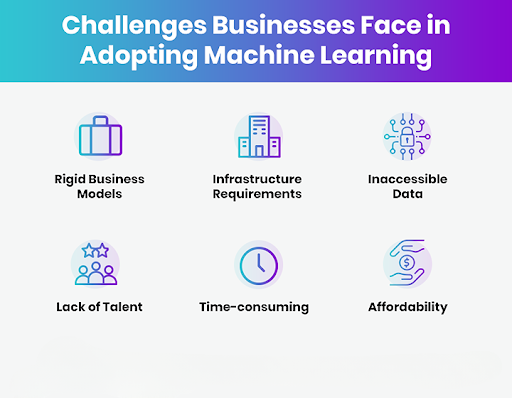
The integration of Artificial Intelligence (AI) and Machine Learning (ML) into systems like NetSuite can provide significant benefits to businesses. Still, it also presents a set of challenges and considerations that need to be taken into account.
Understanding these factors is crucial for successful implementation and long-term sustainability. Here’s a breakdown of the key challenges and considerations that businesses must navigate:
Integration and Compatibility Issues
- Complex Integration Processes: Integrating AI and ML technologies with existing business systems and workflows can be a complex and time-consuming process that requires technical expertise and careful planning to ensure compatibility.
- Interoperability with Legacy Systems: Many businesses use legacy systems that may not seamlessly integrate with modern AI-driven solutions, which may require either updates to these systems or the development of custom integration solutions.
Data Privacy and Security

- Handling Sensitive Information: The use of AI and ML requires access to large volumes of data, including potentially sensitive or personal information. Ensuring the privacy and security of this data is paramount to complying with regulations like GDPR and maintaining customer trust.
- Vulnerability to Cyber Threats: As businesses rely more on digital technologies, the risk of cyber threats increases. Ensuring AI and ML systems are secure against attacks is crucial to protect business data and operations.
Need for Continuous Learning and Adaptation
- Evolving AI Models: AI and ML models require continuous updates and training to remain effective. Businesses need to invest in ongoing learning processes and data analysis to ensure these models adapt to new data and evolving market conditions.
- Keeping Pace with Technological Advances: The rapid pace of technological advancements in AI and ML means businesses must stay informed and ready to adopt new methods or improvements to maintain a competitive advantage.
Cost Implications for Small and Medium Enterprises (SMEs)
- Initial Investment: The upfront cost of implementing AI and ML solutions can be significant, covering not only the technology itself but also the required infrastructure, training, and personnel. This can be a substantial hurdle for SMEs with limited budgets.
- Ongoing Operational Costs: Beyond the initial investment, there are ongoing costs associated with maintaining, updating, and securing AI and ML systems. SMEs must carefully consider these long-term financial commitments.
Addressing these challenges requires a strategic approach, encompassing careful planning, ongoing investment in technology and skills, and a commitment to data privacy and security.
Despite these hurdles, exploring the potential benefits of integrating AI and ML into business operations—enhanced efficiency, improved decision-making, and better customer experiences—makes it a worthwhile endeavor for businesses aiming to stay competitive in the digital age.
Conclusion
The future of AI and Machine Learning (ML) integration into NetSuite presents a transformative path for businesses across various industries. As we’ve explored, the integration of these technologies is set to enhance operational efficiency, improve decision-making processes, personalize customer experiences, and support scalability and innovation within the NetSuite ecosystem.
NetSuite offers advanced predictive analytics to streamline operations and improve decision-making. AI and ML integration promises enhanced customer service and personalization. However, integration complexities, data privacy concerns, and cost implications must be addressed proactively.
Embracing these technologies offers a pathway to significant competitive advantages through enhanced efficiencies, deeper insights, and superior customer engagement. As we move forward, the role of AI and ML in shaping business strategies and operations will only grow, making their integration into platforms like NetSuite an essential consideration for forward-thinking companies.

Meerashri Thakar is a Digital Marketer and Content Marketing specialist with experience in generating SEO-optimized content and has made content on Product, Shopify, Drupal, Digital Marketing, etc.



